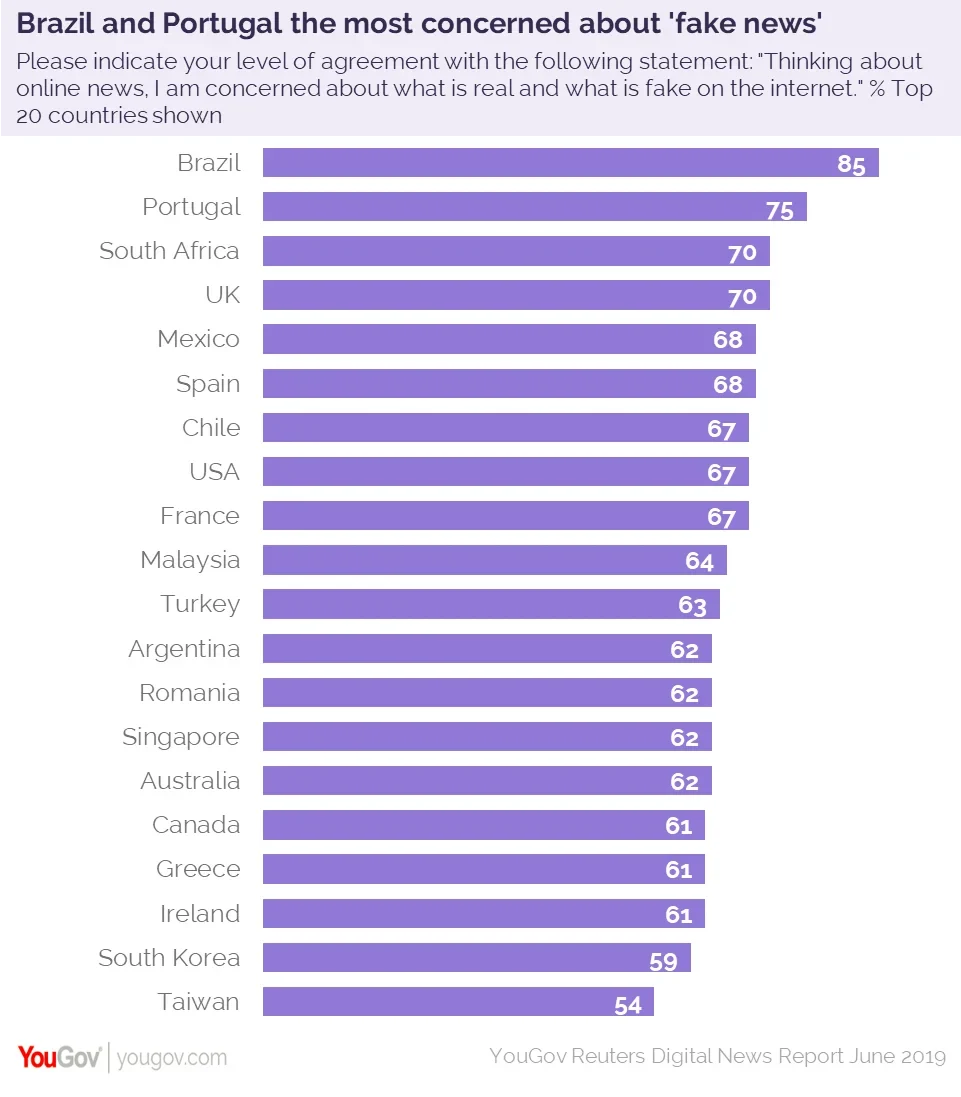People are increasingly concerned about the spread of misinformation, and average trust in the news is down, shows YouGov data.
The eighth annual Digital News Report from the Reuters Institute for the Study of Journalism at the University of Oxford is based on YouGov research among 75,000 people in 38 countries.
Public concern about misinformation remains extremely high, reaching a 55% average across 38 countries, and has grown significantly over the last year in some countries despite attempts by governments and platforms to contain it. Across all countries, the average level of trust in the news is down 2 percentage points to 42%, and less than half (49%) trust the news media they use themselves.

Across all countries, over a quarter (26%) say they have started relying on more ‘reputable’ sources of news, rising to 40% in the US. A further quarter (24%) said they’d stopped using sources with dubious reputations in the last year. (The interpretation of ‘reputable’, ‘less accurate’, ‘dubious’, and other subjective terms were left to respondents to determine.)
The news media are generally regarded as better at breaking news than explaining it. Almost two thirds (62%) across all countries agree that the media is good at keeping people up to date but less good at helping them to understand it (51%).
More people now actively avoid the news
Additionally, more people are now saying that they actively avoid the news (32%) than when last asked two years ago. Avoidance is up 6 percentage points overall, and even more so in the UK – up 11 percentage points - potentially driven by boredom, anger or sadness over Brexit. More than half (58%) avoid the news due to the negative effect is has on their mood.
Social media habits have changed to stop the spread of fake news
Willingness to share information has also decreased, for fear of spreading ‘fake news’. Almost two thirds (61%) in Brazil and 40% in Taiwan said they decided against sharing a potentially false story on social media after recent elections, compared to just 13% in the Netherlands which has the lowest level of concern regarding fake news.
This concern has also led to people changing their social media patterns, particularly in the global South. WhatsApp is a primary network for discussing and sharing news in Brazil (53%), Malaysia (50%) and South Africa (49%), often in large group chats with people they don’t know which could encourage the spread of misinformation. Public and private Facebook groups are also popular in Turkey (29%) and Brazil (22%).
Access the full report here.








